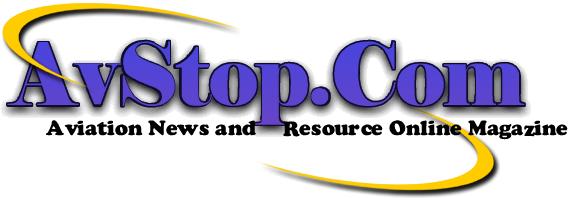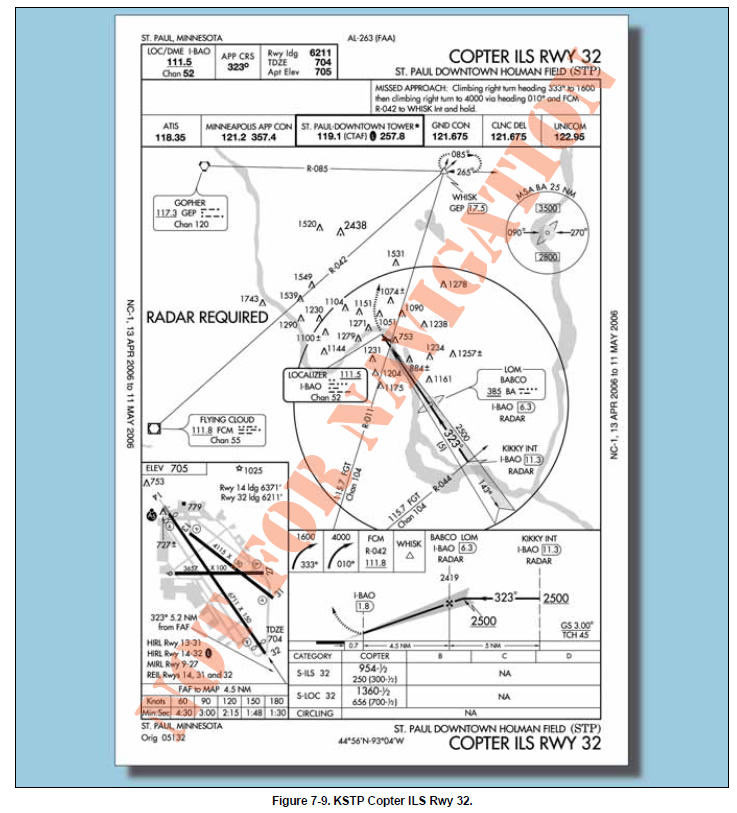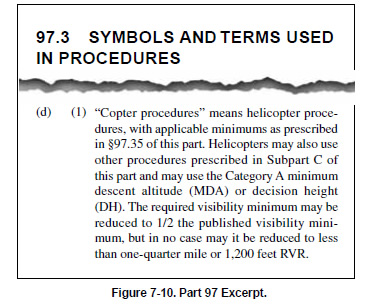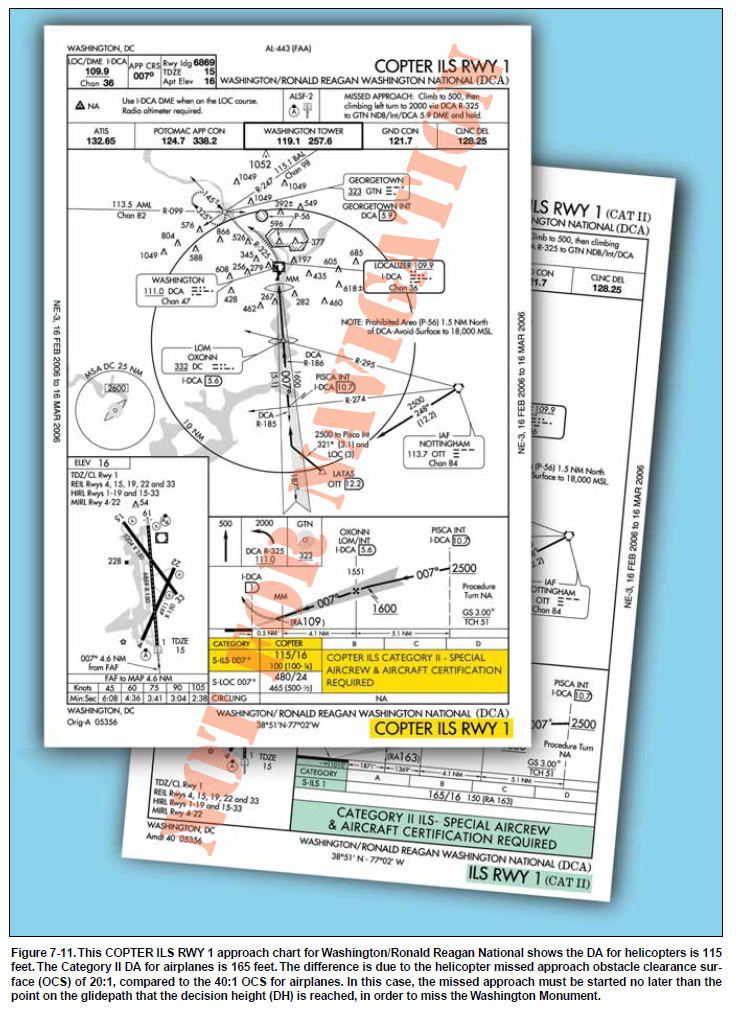 |
|
| INSTRUMENT PROCEDURES HANDBOOK |
COPTER ONLY APPROACHES TO AN AIRPORT OR HELIPORT Pilots flying Copter standard instrument approach
procedures (SIAPs), other than GPS, may use the published
minima with no reductions in visibility
allowed. The maximum airspeed is 90 KIAS on any
segment of the approach or missed approach. Figure
7-9, illustrates a helicopter only ILS runway 32
approach at St. Paul, Minnesota.
Copter ILS approaches to Category (CAT) I facilities
with DAs no lower than a 200-foot HAT provide an
advantage over a conventional ILS of shorter final segments,
and lower minimums (based on the 20:1 missed
approach surface). There are also Copter approaches
with minimums as low as 100-foot HAT and 1/4 SM
visibility. Approaches with a HAT below 200 foot are
annotated with the note: “SPECIAL AIRCREW &
AIRCRAFT CERTIFICATION REQUIRED” since the
FAA must approve the helicopter and its avionics, and
the flight crew must have the required experience,
training, and checking.
The ground facilities (approach lighting, signal in
space, hold lines, maintenance, etc.) and air traffic
infrastructure for CAT II ILS approaches are required
to support these procedures. The helicopter must be
equipped with an autopilot, flight director or head up
guidance system, alternate static source (or heated
static source), and radio altimeter. The pilot must have at
least a private pilot helicopter certificate, an instrument
helicopter rating, and a type rating if the helicopter
requires a type rating. Pilot experience requires the
following flight times: 250 PIC, 100 helicopter PIC,
50 night PIC, 75 hours of actual or simulated
instrument flight time, including at least 25 hours
of actual or simulated instrument flight time in a
helicopter or a helicopter flight simulator, and the
appropriate recent experience, training and check.
For “Copter” CAT II ILS operations below 200 feet
HAT, approach deviations are limited to 1/4 scale of the
localizer or glide slope needle. Deviations beyond that
require an immediate missed approach unless the pilot
has at least one of the visual references in sight and otherwise
meets the requirements of 14 CFR Part
91.175(c). The reward for this effort is the ability to fly
“Copter” ILS approaches with minima that are sometimes
below the airplane CAT II minima. [Figure 7-11
on page 7-12] The procedure to apply for this certification
is available from your local Flight Standards
District Office.
|


